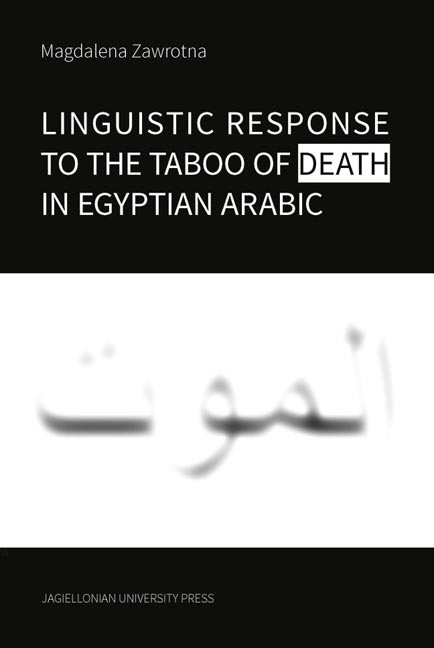Book contents
- Frontmatter
- Contents
- 1 Transcription system
- 2 Introduction
- 3 What is formulaicity?
- 4 Material
- 5 State of research
- 6 Structural notes
- 7 Qualitative analysis of death announcements, comments containing condolences and their responses
- 8 Recapitulation of the analysed material
- 9 Death and the agency of God
- 10 The taboo of death
- 11 Summary
- 12 Questions for further exploration
- Bibliography
- Miscellaneous Endmatter
2 - Introduction
Published online by Cambridge University Press: 14 October 2023
- Frontmatter
- Contents
- 1 Transcription system
- 2 Introduction
- 3 What is formulaicity?
- 4 Material
- 5 State of research
- 6 Structural notes
- 7 Qualitative analysis of death announcements, comments containing condolences and their responses
- 8 Recapitulation of the analysed material
- 9 Death and the agency of God
- 10 The taboo of death
- 11 Summary
- 12 Questions for further exploration
- Bibliography
- Miscellaneous Endmatter
Summary
Human beings are fearful creatures. The world that surrounds them is full of dangers. They fear death in particular, and therefore, seek protection from danger and the ubiquitous possibility of dying. Although this is common for all people, this book focuses on Egyptians, their fears and their sociocultural conditions.
Fear is perceived in Islam as a natural reaction to the surrounding world; people are fearful because they were created this way. According to the Quran, inna l-insāna ḫuliqa halūʿan ‘man was created anxious’ (Piamenta 1979: 19). So, people fear “physical, mental, and spiritual oddities, bad actions, adversities and misfortunes, demonic and evil forces” (Piamenta 1979: 92). There is a potential danger in everything, therefore, people, when overwhelmed by uncertainty, or when confronted with death, illness, loss of a precious possession, etc., seek refuge in God, beg for God’s mercy or express their resignation to God’s will:
(1) ana fiʿarḍi rabbina ‘I implore the protection of our Lord’ (MP).
(2) ana mitwakkil ʿala ḷḷāh ‘I have put my trust in God’ (MP).
(3) ḥasbuna ḷḷāh wi niʿma l-wakīl ‘God is sufficient for us. Most excellent is he in whom we trust’ (MP).
(4) ḫallīha ʿala ḷḷāh ‘Leave it to God!’ (MP).
(5) iḥna ʾulna lli ʿalēna wi l-bāʾi ʿala ḷḷāh ‘We have said whatever we should; the rest depends on God’ (MP).
By reciting these formulae, people submit themselves to God’s will, hoping that God will save them from danger. They do not have to be explicit about their fears, for they are often a subject of taboo. Various methods of indirectness are used to circumvent a dangerous topic. In such cases, the way it is communicated reflects cultural identity and beliefs. In this book, I present an analysis of the reaction to the taboo of death, which can probably be considered as one of the greatest dangers in store for people in life and in society.
The first author to use the term “taboo” (Polynesian tapu) was Captain James Cook in the logbook of his third trip to Polynesia 1776–1779, on his voyage to discover the Northwest Passage from the Atlantic to the Pacific (Allan and Burridge 2006: 3).
- Type
- Chapter
- Information
- Publisher: Jagiellonian University PressPrint publication year: 2021



